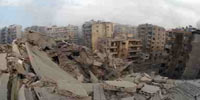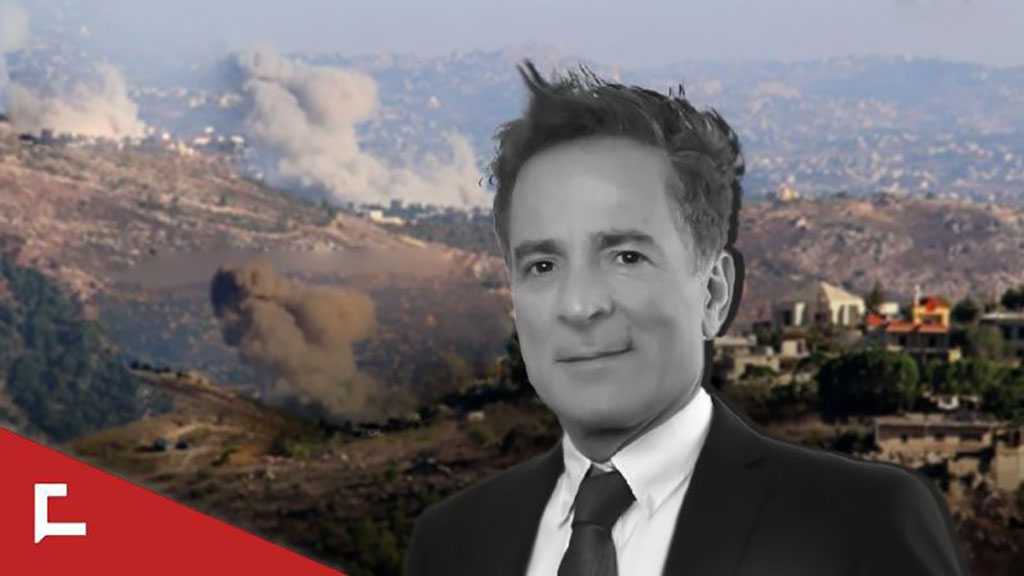Legal Validity of Wikileaks Scandals Concerning Involved Politicians: Harmed Lebanese Can Sue Them

Local Editor
Al Intiqad, By Ali Al Moussawi
The Wikileaks cables leaked from the treasury of the American Department of State confirmed information that had been current concerning the backstage of the common "Israeli"-American War on Lebanon between July 12, 2006 and August 14, 2006. The cables mentioned the role that March-14 Lebanese officials had played in this war by inciting its directors to sustain the shelling, raids, massacres, slaughters, torture and dislodging of armless civilians, as well as damaging the infrastructure. This had been upon their belief that such a course of action could weaken the Resistance that was offering all kinds of sacrifices in order to encounter the assault, rout the invader, and preserve the country's freedom, sovereignty, dignity, and pride.
For instance, the information published in these cables was regarding gatherings and meetings that had been held by the American Ambassador in Lebanon - Jeffrey Feltman - and other embassy chiefs with March-14 forces, on top of who were Prime Minister Fouad Siniora, head of the "Future Party" (Almostakbal) - Saad Eddeen Al Hariri, MP Marwan Hamadeh, former MP Fares Seid, and the chief of the Executive Committee of the "Lebanese Forces" - Samir Jaejae. Such information wasn't new since the Lebanese politicians hadn't stopped bragging about it and declaring it on the different occasions. They would even come up with occasions to declare their aggressive attitudes towards the people of their country and the defenders of the country's dignity. In case they became helpless, they would deliver previously prepared statements, without offering any regard to the committed massacres.
Besides, they wouldn't hesitate to express these opinions during their assemblies and in the political meetings which they intended to attend in order to execute the plot that would accompany this war. The plot aimed at giving a distorted image and impression of the state of the frontier, communicating false information concerning the progress of the frontier and the regional and international political follow-up of this progress. All this aimed at weakening the Lebanese interior and creating a sense of feebleness, what would provide the background for further profanation and occupying Lebanon anew.
The Lebanese people still remember the picture of Siniora's fabulous hug to the American Foreign Secretary of State - Condoleezza Rice - at the Governmental Palace hall, whereas the Lebanese children of various doctrines and confessions at different Lebanese regions were suffering infanticide and great fear of the Israeli drones in the Lebanese air space which might kill them at any moment.
Still, the Lebanese haven't forgotten the expression of "the adventurers", which was used by Al Hariri in harmonization with the Saudi Arabian attitude, neither have they forgotten the defiance of the Under Secretary of State - Ahmed Fatfat- to protect Marjehyoun Barracks by opening its doors to the Zionist soldiers, quenching their thirst with tea, and receiving them finely. This has been because the fine reception of a guest, even if he is an occupant or a murderer, is a prime courtesy of March 14 Forces.
After the war had ended, some Lebanese, who lost their parents, children, families, houses, and properties, rushed to file cases against the "Israeli" enemy, as for the Lebanese government, it theoretically pursued the suing of the enemy, whereby it did not practically sustain its work by setting the files that could support the government's attitude and evidences, although the evidences were documented and photographed. The photographs, which showed so many "Israeli" assaults on land, in the sea, and in air, were watched by millions of people on earth.
Since Wikileaks cables have appeared to confirm what's been confirmed and to support what was known, the legal interpretation of their results, implications, and effects shows that the Lebanese majority that were harmed during the July War in 2006 can file new cases to the Lebanese judiciary or to any European or foreign judiciary. All they have to do is to attach copies of the Wikileaks cables to their cases in order to provide evidence of the treason, collaboration with a foreign country, and preference of that country's interest to the Lebanese one.
|
Any Lebanese citizen
who has been morally or physically harmed can sue them |
According to several lawmen, the Lebanese penalty law punishes the perpetrators of the scandals published on the pages of the Wikileaks cables; thus, any civilian who has been harmed physically or morally by the July Assault in 2006 can attach these cables to any case he intends to file against its perpetrators since criminal acts can be clearly noted and do need efforts of research and inquiry. Besides, the crimes of the July War haven't become dismissed - as many hope - because there hasn't been ten years yet since the crimes were committed. In fact, the publication of the Wikileaks cables in 2011 reinforces evidence of the direct or indirect involvement of many Lebanese politicians in these persistent crimes and enables the harmed civilians to file cases of this war again.
A lawyer declares that the laws that are applicable for the Lebanese people mentioned by the Wikileaks cables are the following:
Firstly, The treason mentioned in the penalty law 274 states, "Every Lebanese person who conspires with a foreign country or contacts it to evoke its assault against Lebanon or to provide it with the means for that is punished with permanent arduous labor. In case his act leads to consequences, he receives the death penalty."
Secondly, the acts are classified within the penalty law 275 which states, "Every Lebanese person who conspires with the enemy or calls it to support the conquest of its forces receives the death penalty."
Thirdly, the crimes of these politicians do not lie at a distance from the penalty laws 295 and 296, whereby the first states, "In times of war or when it is expected to break out, whoever, in Lebanon, calls for weakening the national sentiment or provoking sectarian and racial incitements is punished with temporary arrest." As for the second, it states, "The same penalty is deserved by whoever, in Lebanon, communicates news which he knows are false or exaggerated and might weaken the nation's psyche."
Fourthly, the misdemeanor of the penalty law 283 can't be placed distantly from the acts mentioned in Wikileaks, since "Whoever having possession of some documents or information that must be kept secret for the sake of the country's security announces or unveils them for no legitimate reason is punished with imprisonment ranging from two months to two years." The content of the published secret documents reveals that prime March-14 characters intended to inform the American ambassador and his embassy staff of any news as respects the Resistance and its weaponry. They did that in an attempt to receive the American satisfaction and, thus, earn a ministry or win a parliamentary chair easily.
Some politicians have said that what they deliberated with the Americans was not a communiqué or unveiling of secrets, but it was an expression of a viewpoint, the reason beyond which was not leaking information to the enemy. The response to this is that the Americans were more insistent than the "Israelis" to extend the war after the consecutive defeats of the "Israeli" forces in southern Lebanon, whereby "Israel" desired to end the war in order to lessen its casualties. Nevertheless, some Lebanese politicians, whose names were mentioned in the Wikileaks cables, were encouraging the Americans to sustain this war so those politicians could conquer the Resistance which had spoiled their plans, disappointed their hopes, and classified them as first-class agents - even though they were in political costumes.




